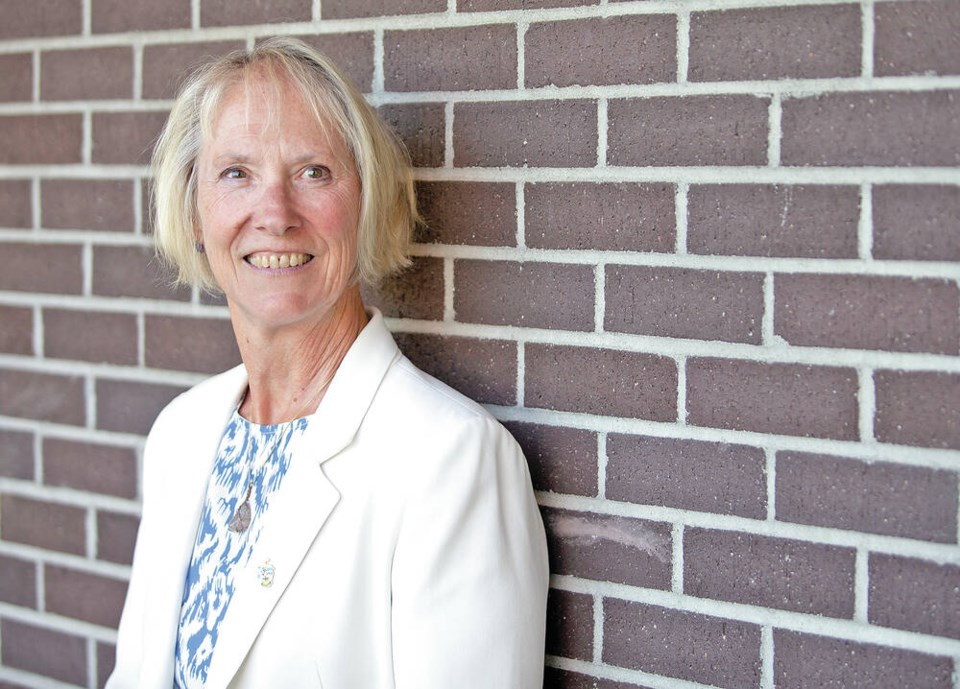The Township of Esquimalt has hired a consulting firm to come up with alternatives to its shared policing agreement with the City of Victoria, which expires at the end of next year.
Barb Desjardins, who will be sworn in for her fifth term as Esquimalt mayor next week, said the consultants are free to come up with a wide range of solutions, though one won’t likely be establishing a regional police force – something both Esquimalt and Victoria have said they would ultimately like to see.
“I don’t believe that’s within the scope of what we are asking,” said Desjardins, though she held out hope that new policing models could be considered in future.
In the wake of the Oct. 15 municipal elections, she said, “there are new councils and maybe new viewpoints. Clearly this situation is not working, so there is an opportunity for that discussion to occur.”
Esquimalt has complained for years that it is getting a raw deal under the shared policing agreement established in 2002. The township pays about 14 per cent of the $64-million Victoria police budget, but it says that’s too much, given its declining crime rate and fewer calls for service.
Earlier this year, Esquimalt approved the core police budget of $64 million but balked at a $1.34-million price tag for additional positions — four new civilian posts and two officers for the Assertive Community Treatment team, two officers who would be part of a co-responder team with Island Health, a cultural liaison officer to build bridges with the Indigenous, Black and people of colour communities, and a sergeant to work on cybercrime.
Esquimalt felt Victoria ought to pay that extra bill, and appealed to the province to rule on the dispute. The province recently ruled Esquimalt was on the hook for its share of the additional funds.
Earlier this year, Esquimalt council voted not to renew the 10-year Police Framework Agreement, but it needs provincial approval before it can get out of the agreement, as well as a plan for a new service model and for transitioning from the existing situation.
Perivale and Taylor Consulting, which has a history of working with governments and police forces on governance reviews and developing strategic plans to implement change, is expected to start work this month, and the public will be asked to weigh in on the proposed alternative service model before it is submitted to the province for approval next summer.
Desjardins said keeping the public updated and listening to public feedback will be important in the process.
“It’s something we take very seriously, because as you go down this pathway if there are changes you want, you want to make sure your community understands what those changes are,” she said.
The merger of Esquimalt and Victoria police was supposed to be the first step toward creation of a regional police force, but that plan stalled in the face of opposition from many municipalities.
Esquimalt tried to break away from the forced marriage a decade ago, but was rebuffed by the province.



